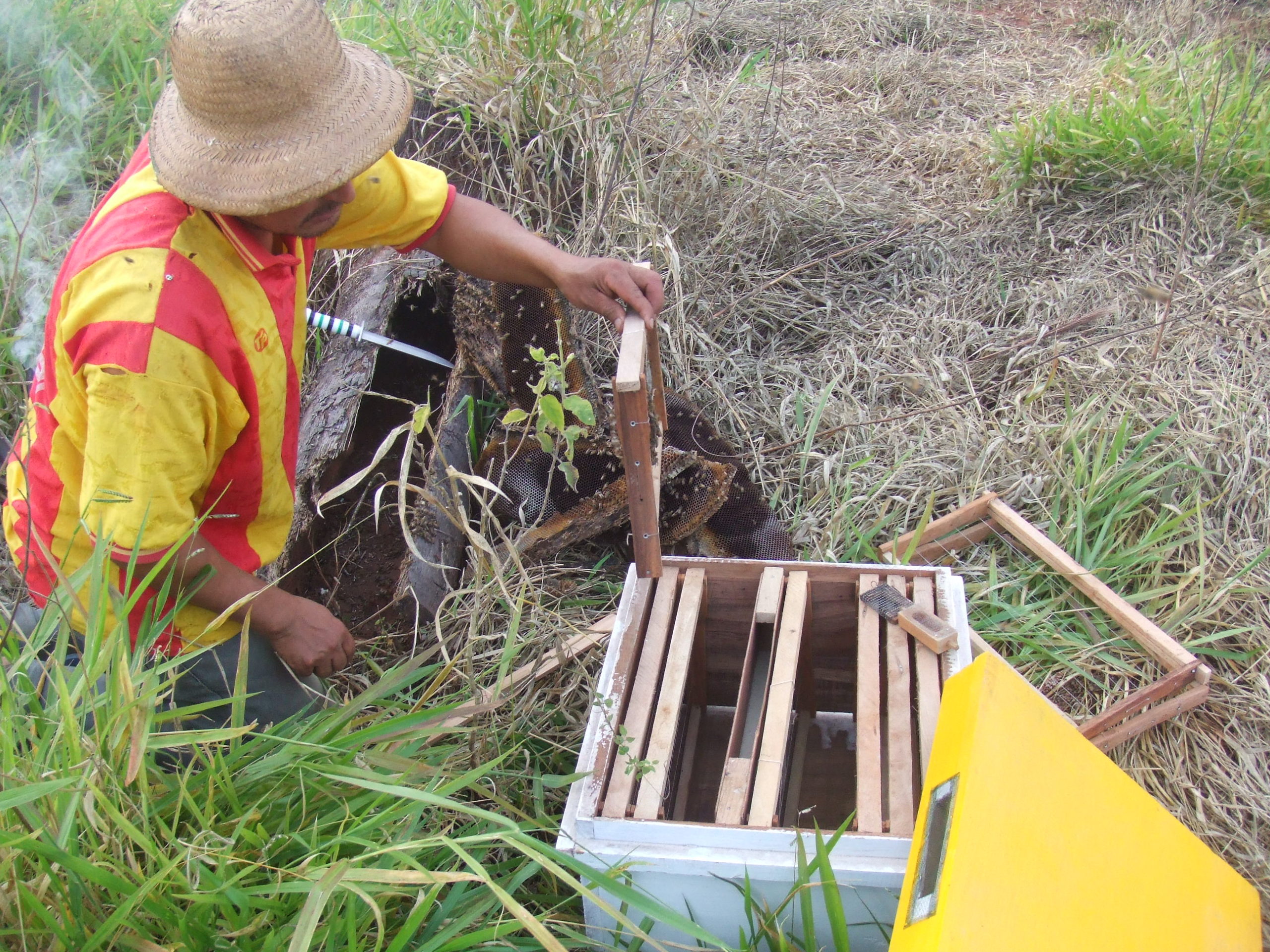Everyone has those moments that seem a good idea at the time. One of mine was becoming a beekeeper.
From time to time in the wilder corners of my garden a swarm of bees settles down to make itself at home. There a various fallen and rotted bits of tree which make an idea home for a swarm of bees.
Many years ago I discovered some bees that had made themselves at home. The interior of a fallen palm tree had been filled by their hive.
The wood was old and rotted. Hollow on the inside and with an exterior slowly crumbling away. Suitable for the swarm for a season or two before it would need to seek a new home.
This also meant that the honeycombs were visible from the outside. So extracting the hive should not be too difficult.
Moving them from where they were to a purpose built hive seemed simple enough. Then I would have a regular source of fresh honey.
For the moment the bees were left where they were. Visiting the agricultural supply shop in town I got hold of a wooden hive. Then a beekeeper was found to move the bees from one place to the other.
Extracting the bees was fairly straight forwards. After blowing the smoke from burning corncobs into the rotten tree trunk to subdue the bees he cut away some of the wood with a machete to get at the honeycombs. Off these he brushed bees as he sought the queen. Once found the queen was trapped in a little box to stop her escaping.
Whilst doing this he wore neither gloves or a head covering. Just a t-shirt and a straw hat. So could not have been too concerned about getting stung.
From there pieces of honeycomb were tied to to panels of the wooden hive so the bees would know where to build a new hive. The remainder of the honeycombs were pressed for their honey. Sweet fresh honey, straight from the hive.
The queen in her box was placed in the bottom of the hive. The rest of the swarm would then follow her into their new home. The beekeeper would return a couple of days later to release the queen from her confinement.
Once the panels and queen were inside the wooden hive the first flaw in my plan became obvious.
The bees would be fine in the hive as long as the weather remained neither too hot or too wet. However there was no roof to protect them from sun and storms.
As a temporary measure the hive ended up on the rear terrace of the house. Sitting on top of a couple of old oil drums. Just outside the back door is not the best place for a swarm of bees, but it was only meant to be a short term solution.
The queen was released and the rest of the swarm soon found the new hive. It soon became clear though that moving everything once more was not going to be easy.
The hive sat in a corner up above head height. At its entrance hundreds of bees remained all day long. Coating the front of the hive and making it very hazardous to get to.
Weeks became months and the bees remained on the terrace. Surprisingly the didn’t try to move into the house, but they did make the terrace unusable. I got used to them. Learnt their flight paths and never got stung. I did though have to reassure any visitors I had that they were not in danger.
The bees stayed there for the rest of the year.
As winter approached I had a carpenter make me a roof on stilts to move them to. Once winter arrived the swarm would become inactive and there was a chance of moving it without getting stung.
The roof was built a good distance from the house. Then with a couple of helpers the entrances to the hive were blocked up and the whole thing moved to its new location.
For a while bees continued to come and go from the hive. Then activity around to came to a halt.
Upon opening the hive I found a lack of bees. They had either died or moved to somewhere more of their liking. Behind on the combs they had left very little honey. That which was in the hive was being greedily consumed by ants.
And so it was my attempt to be a beekeeper came to an end. I had not been stung, but neither had I received any honey for my efforts.
Somethings work out just fine. Others, like keeping bees, are problem after problem from day one.


Shame fresh honey would have been lovely
Great blogpost. I will read more soon!
Thanks! And please do. There is plenty there to explore
Every weekend i used to pay a visit this website, as i want
enjoyment, for the reason that this this website conations in fact pleasant funny stuff too.